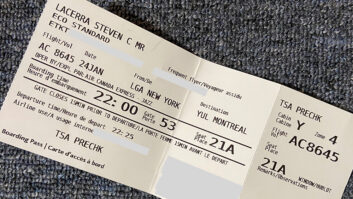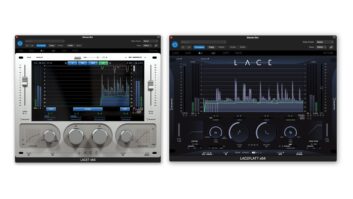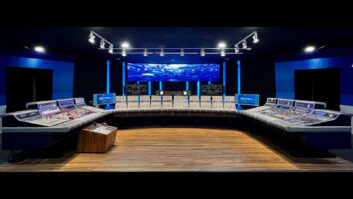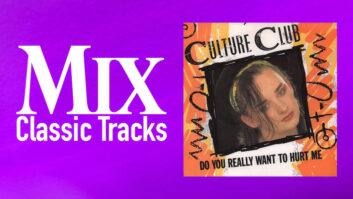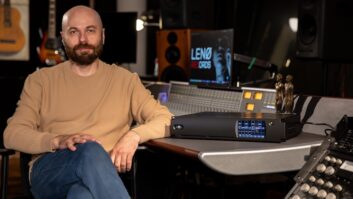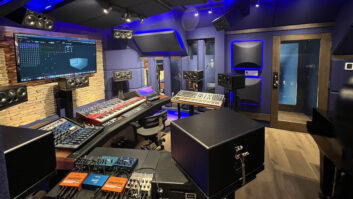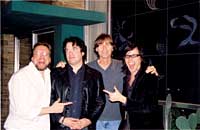
Memphis is a town of contradictions, a seemingly illogical place where nothing seems to happen and a lot of things are happening at once. More than a million people live in the area, yet it feels like no one’s in a hurry and they’ll arrive in their own time.
The music that has come out of the River City has in many ways changed the world, thanks to iconoclasts, renegades and dreamers such as Sun Records founder Sam Phillips, Estelle Axton and Jim Stewart, who started Stax Records (Isaac Hayes, Sam and Dave, Otis Redding), Willie Mitchell and his Hi Records label (Al Green), Quinton Claunch of Goldwax (O.V. Wright, The Ovations) and John Fry of Ardent (Big Star, Cargoe). So much important music has come out of Memphis that it is easy to overlook fresh, new homegrown talent such as the North Mississippi Allstars, hard-rockers Saliva and hip hop act Three 6 Mafia.
Even though there are studios throughout the metro area, the heart of the Memphis recording scene is in Midtown, a patchwork of neighborhoods with blocks of stately old homes and huge trees, as well as funky commercial areas and apartments.
L-R: Big Star co-producer Jeff Powell, guitarist/vocalist Jon Auer, Jody Stephens (drummer/vocalist) and Ken Stringfellow (bassist/guitarist/vocalist) play offstage.
Photo: Adam Hill
THE HEART
At 2000 Madison Ave. is one of the city’s finest and largest facilities, Ardent Recording, which boasts three studios and a mastering suite. Studios A and C feature Neve VR60 48×48 and V Series 40×48 consoles, respectively. Studio B is outfitted with an SSL 6056E with G computer. The mastering room is built around a 24-bit/192kHz SADiE workstation.
Founded in 1966 by owner John Fry, Ardent has been the recording destination for R.E.M., B.B. King, Led Zeppelin, the Allman Brothers, Stevie Ray Vaughan, Bob Dylan, Al Green and James Taylor, as well as more recent Platinum acts such as Evanescence, Sister Hazel, Riddlin’ Kids and 3 Doors Down. In addition, Fry has nurtured the successful producer/engineer careers of Jim Dickinson, Joe Hardy, John Hampton, Paul Ebersold, Skidd Mills, Jeff Powell, Tom Laune and Pete Matthews.
In the 1970s, the Ardent Records label was home to a handful of distinctively melodic pop rock bands. One of those bands, Big Star, put out two albums (#1 Record and Radio City) on the label and recorded a third at the studio (Third/Sister Lovers). Thirty years later, Big Star returned to Ardent to record their still-untitled fourth album, this time for Rykodisc, produced with Jeff Powell, who also runs the Madjack label, home to local singer/songwriters Rob Jungklas and Cory Brannan and Americana bands Lucero and The Pawtuckets.
“We recorded and mixed on the Neve VR in Studio A,” says Powell of the Big Star sessions. “I used ProAc Studio 100 monitors, and we used all the plates and echo chambers at Ardent and stayed away from all digital reverbs. The record was recorded 24-track analog and mixed to half-inch. We were using some old compressors, including this ADR F-700 that we ran drums through that sounded like a million bucks. I think the biggest thing the studio brought to the picture was some of the same gear that was used to make the original Big Star records. There is still that thread that ties the new album to the old stuff.”
During the 1990s, Ardent retooled its label toward Christian rock with the A&R help of Dana Key, whose local group, DeGarmo & Key, was one of the first acts to bring meaningful visibility to the fledgling format in the ’70s. Producers Paul Ebersold and Skidd Mills also helped sign acts such as Big Tent Revival, Skillet and Todd Agnew, which brought the label significant success. Ardent recently brokered a secular-market licensing arrangement with Lava/Atlantic for Skillet, whose latest Ebersold — produced album, Collide, has already done well in the Christian rock market.
THE SOUL
Gospel music has always been a large part of Memphis’ scene, and ensembles like the Grammy™-winning O’Landa Draper’s Associates have helped set the standard for the best in the genre.
On April 1, 2004, one Memphis locale known for keeping the gospel tradition alive, Hope Presbyterian Church, went online with a serious music studio setup. “The room is what we would like to think of as the future in recording,” says Hope’s chief engineer, Keith Compton, who has enjoyed a lengthy career working with Christian artists such as Shirley Caesar, Steve Green, Jars of Clay, Julie Miller and Michael W. Smith. “There is no console in the control room. The studio is built around a Pro Tools|HD Accel system with Digidesign 192s. We have 24 channels of API pre’s, 20 channels of API EQs, eight channels of Neve 1081s, eight channels of JB mic pre’s, four channels of Martech mic pre’s, SSL, Tube-Tech, Massenburg EQs and compressors, and other odds and ends. The main monitors are the Munro MP4-plus system with Chord amps. Our mic selection includes all of the basic array of expected mics with a few extra old tube Neumanns.”
Hope’s music director, Bruce Carroll, has had a long career as an artist with multiple Grammy and Dove Awards. He is excited about the role of the church’s studio in the community. “I want to facilitate great art coming out of the church again, and I want to train, equip and mentor artists, musicians and worship leaders to do what they do skillfully, intentionally and with excellence without having to sell their souls and/or copyrights and masters to do great things that can impact the world in a positive way,” says Carroll. “My goal is to give away as much as possible in guidance and studio time, and to rebuild a community in Memphis among artists, writers and musicians.”
THE ROCK
Jim Dickinson, a producer, musician, artist and all-around champion of Memphis music and culture, has served as mentor to many in the community. He’s recorded with the Rolling Stones, Bob Dylan and Aretha Frankin, and produced important albums for The Replacements, Toots Hibbert, Big Star and Ry Cooder, as well as his sons’ band, the North Mississippi Allstars. The Allstars just landed a track in the upcoming Sponge-Bob Squarepants movie, which was recorded at Ardent with John Hampton engineering and Dickinson producing. It was also co-written by Dickinson and his son, lead singer/guitarist Luther Dickinson.
Although he owns his own facility, Zebra Ranch studio, Dickinson is currently producing the next Allstars album, Electric Blue Watermelon (which features rockabilly guitarist Roland James), at Phillips Recording studio. Another project underway at Phillips is Nate “The Rat” Whitlock, whose album, Rat On, is being co-produced with Jim Blake, founder of the Barbarian Record label.
THE BUSINESS
Over in the Cooper Young area of Midtown, near the old musician’s union, is Young Avenue Sound, the brainchild of Don Mann and Willie Prevear which has generated quite a buzz by marketing itself as a “performer’s recording co-op.” Young Avenue Sound is a turnkey organization that offers artists recording, manufacturing and distribution services through the co-op’s label, Memphis Records. Artists purchase the CDs at $5 a unit until an initial deposit is recouped, after which CDs are bought at a significantly reduced amount.
“Music is everywhere in Memphis, but there’s not a lot of music business,” says Prevear. “The musicians here play for people ’cause they love it: It’s in their blood and bones. It’s who they are, not who they want to be when they get rich and famous. This is a player’s town and I love it here. There is a real sense of community, an arrogantly shabby, ‘up the establishment’ vibe that gets an old hippie like me off.”
The facility’s main room features a Neve VR36 console with Flying Faders automation and Total Recall, Genelec 1036C triamp monitors, a Genelec 7071A active sub and Yamaha NS-10Ms. Analog gear includes a Studer A827 2-inch 24-track and an Otari MTR-12G 2-track.
Studio B features a large complement of Mackie and Tascam gear, a Pro Tools MIX-Plus system, and Tannoy 1200 and Yamaha monitors. Studio C features Pro Tools|HD 3. There is also a mobile studio with a 32-channel Soundcraft Ghost, an Avilex CMX 24/4 sidecar and a Tascam MX-2424 hard disk system with a Furman AR-1230 power supply. Mics include multiple matched sets from Earthworks, Neumann, Sennheiser, RØDE, Royer and others.
Clients have included the Blues Foundation, NARAS and B.B. King’s Blues Club, as well as releases by Richard Johnston, Memphis Jazz Orchestra, Kirk Whalum, The Subteens, Susan Marshall and Jesse Winchester. Currently, Memphis Records’ Free Sol (a quirky synthesis of hard rock, retro soul and hip hop) is getting quite a bit of attention with their debut release, 11:11.

Artist Jimmy David (l) and Jack Holder (producer/singer/engineer/studio manager) at Sounds Unreel
Photo: Rick Clark
THE REAL MADE UNREEL
Less than a mile away is Sounds Unreel, co-founded by Jon Hornyak and Don Smith in 1981 and whose SUR label had regional success with The Crime and Good Question. The studio is still owned by Smith, though Dawn Hopkins and Jack Holder handle the day-to-day and engineering duties. Holder is one of Memphis’ finest multi-instrumentalists; Hopkins is a solid engineer with impeccable musical instincts and a loyal clientele — predominantly blues and R&B artists such as Irma Thomas, William Lee Ellis, Rod Piazza and Jimmy Thackery.
Sounds Unreel features a Neve 8128 console, Otari MTR-90II 2-inch 24-track, Pro Tools TDM 5.1.3, Otari MTR-10 ¼-inch 2-track, Ampex ATR-102 ½-inch 2-track and a nice complement of outboard gear, including a UREI 1176 Blackface and LA-4s, API 3124+, and JFL Audio mic pre’s and compressors by Frank Lacy.
Jerry Lee Lewis, Mojo Nixon, The Gunbunnies, Joe Walsh, Flat Duo Jets, James Cotton and Tracy Nelson are among those who have recorded at Sounds Unreel. Holder and Hopkins are currently working with up-and-coming local rock band Crippled Nation and Little Rock, Ark.-based ensemble Pop Sonic.
THE BLUES, THE HOP
Down the street from Ardent is Cotton Row Recording, owned by producer/engineer Niko Lyras. During his 23 years in the business, Lyras has been involved with numerous Gold and Platinum records and received many international awards.
Lyras has been deeply involved with R&B, funk, jazz and blues-influenced music, having worked with Bobby “Blue” Bland, ZZ Top, Bonnie Raitt, John Lee Hooker, The Barkays, Mavis Staples, Dr. John and Tony Joe White, among others. During the past decade, Cotton Row has become a hotbed of hip hop and rap, with releases from The Roots, Three 6 Mafia, 8Ball and MJG, Al Kapone, Hot Boys, Raekwon, Krazybone, Gangsta Pat, Project Pat, Gangsta Boo, Juvenile, Spice One and Lil John.
A top-notch guitarist, Lyras attracts the cream of the local musician crop. His latest creative outlet is forming the group Voodoo Village, whose debut album is getting strong airplay on smooth jazz stations. Other recent productions include the Soul Comes Home Stax reunion album and new Memphis metal/hop group Egypt Central.
THE VIBE
House of Blues Studios was founded in 1987 by Memphis native Gary Belz and Eagles guitarist Joe Walsh. Through the years, the four-room facility has hosted genre-crossing luminaries including Pops Staples, Jonny Lang, John Hiatt, Isaac Hayes, Janet Jackson, Rodney Jerkins and Kenny Wayne Shepherd. Studio A, with its 1,400-square-foot tracking space and three iso booths, is fitted with a 72-channel, 144-input Neve VRSP console with Memphis’ only 8-channel film monitor section, and was the site of the mixes for Matchbox 20’s multi-Platinum Yourself or Someone Like You, as well as the guitar recording for Stevie Ray Vaughn’s In Step. Studio B, with its 52-input Westar console, is a favorite with urban artists, and has hosted some of hip-hop’s finest, such as Tela, E-40, SkaFace, Three 6 Mafia and Yo Gotti. Under the direction of in-house client Chilmark Entertainment, producers including Malcolm Springer have been developing a variety of new regional artists such as King James and Justifide.
“Our Memphis studios have always reflected an inspirational vibe that stimulates creativity and comfort,” comments Belz, who in addition to owning East Iris Studios in Nashville and House of Blues Studios in Los Angeles, developed and owned the award-winning Ocean Way Nashville. “It is, honestly, my favorite of all my studios.”

Jack White and Loretta Lynn captured a spirit of rebellion on her latest, Van Lear Rose, at Easley Recording Studios.
Photo: Doug Easley
THE HIP
In a rough-and-tumble area off Lamar Avenue lies Easley Recording, owned by Davis McCain and Doug Easley. Most recently, White Stripes’ Jack White wrapped up production of Loretta Lynn’s new album, Van Lear Rose, at Easley, where it was mixed by White and Eric McConnell. Through the years, Easley has been the favored destination for a huge list of alternative and indie bands, including the White Stripes, Pavement, Modest Mouse, Wilco, Sonic Youth, Iggy Pop, Jeff Buckley and Cat Power.
The Reigning Sound’s first two albums, Break Up Break Down and Time Bomb High School, are examples of the great regional music to come out of Memphis since Big Star’s work in the ’70s. The band has a new album of raw garage-rock chaos called Too Much Guitar, which was engineered by Alicia Trout, Jay Retard and Easley.
THE EVERYTHING
Out in East Memphis in a gutted ’50s-era ranch house is 747 Recording, which is co-owned by producers Paul Ebersold and Skidd Mills. Ebersold has produced a number of Platinum acts through the years, including Sister Hazel and 3 Doors Down. Most recently, he produced two more Platinum-level acts: Saliva and Christian rockers Third Day.
“This studio is like our personal toolbox,” says Ebersold. “It was built for us and what we like.” The studio opened in January 2003, and is equipped with an SSL EG console, eight Neve modules, 16 API mic pre’s, a couple of Focusrite modules and two Pro Tools systems, among other gear.
When asked, “Why Memphis?” Ebersold quickly replies, “Soul, blues, rock, gospel — everything that I love is in Memphis. You’ve got Al Green. Amazing gospel music. Not too mention Elvis, Carl Perkins and so much more. Part of this is because I was raised here — it is who I am.”
Jon Hornyak, executive director of the Memphis chapter of the Recording Academy, adds, “During the last 50 years as a recording center, Memphis continues to be a great place to make music. The independent creative and entrepreneurial spirit that historically put Memphis on the map continues be alive and well here.”
Rick Clark is Mix‘s Nashville editor.
